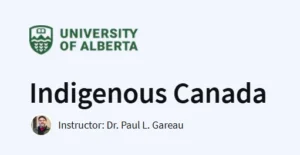What you will learn in Feminism and Social Justice Course
- Define Feminism: Understand Professor Bettina Aptheker’s working definition of feminism and develop your personal interpretation.
- Historical Case Studies: Examine pivotal events such as the 1951 Empire Zinc strike, the 1971–1972 trial of Angela Davis, and the #MeToo movement to understand their impact on feminist activism.
- Role of Protest: Discuss how protest functions as a tool for feminist and social justice movements.
- Contemporary Relevance: Analyze the ongoing significance of feminism in addressing modern social justice issues.
Program Overview
What is Feminism?
⏳ 1 hour
Focus: Introduction to feminism as a movement, philosophy, and driver of social change.
Content: Includes videos, readings, assignments, and discussion prompts.
Salt of the Earth
⏳ 2 hours
Focus: Study of the 1951 Empire Zinc strike and its feminist dimensions.
Content: Features the full 1954 film “Salt of the Earth” and related discussions.
Free Angela!
⏳1 hour
Focus: Analysis of Angela Davis’s 1971–1972 trial and its significance in feminist history.
Content: Includes video lectures and discussion prompts.
The #MeToo Movement
⏳ 1 hour
Focus: Exploration of the #MeToo movement’s origins, impact, and ongoing relevance.
Content: Features video lectures and discussion prompts.
Additional Materials (Optional)
⏳ 1 hour
Focus: Further exploration of topics through additional lectures and readings.
Content: Includes optional materials for deeper understanding
Get certificate
Job Outlook
Advocacy and Activism: Working with organizations focused on gender equality and social justice.
Education: Teaching positions in gender studies, sociology, and related fields.
Policy Analysis: Roles in analyzing and developing policies related to gender and social equity.
Nonprofit Sector: Positions in nonprofits dedicated to women’s rights and social justice causes.
Specification: Feminism and Social Justice
|
FAQs
- No prior knowledge of feminism or social theory is required.
- Suitable for beginners, students, and social justice enthusiasts.
- Introduces key concepts, historical developments, and contemporary debates.
- Encourages critical reflection on gender, power, and inequality.
- Explains intersectionality and its relevance to feminist theory.
- Discusses diverse perspectives across race, class, culture, and sexuality.
- Encourages understanding of overlapping systems of oppression.
- Provides tools for analyzing complex social justice issues critically.
- Provides knowledge applicable to social justice activism.
- Encourages critical evaluation of policies and social systems.
- Supports development of advocacy strategies and community projects.
- Enhances awareness of global and local gender-related issues.
- Discusses feminist theory and social justice in global and local contexts.
- Explores cultural differences in gender roles, activism, and law.
- Encourages reflection on cultural norms and ethical perspectives.
- Supports inclusive understanding of social justice challenges worldwide.
- Builds critical thinking and analytical skills applicable to social justice careers.
- Enhances understanding of gender, power structures, and policy frameworks.
- Provides knowledge useful for advocacy, research, or teaching.
- Serves as a stepping stone for advanced studies or professional practice in social justice.





